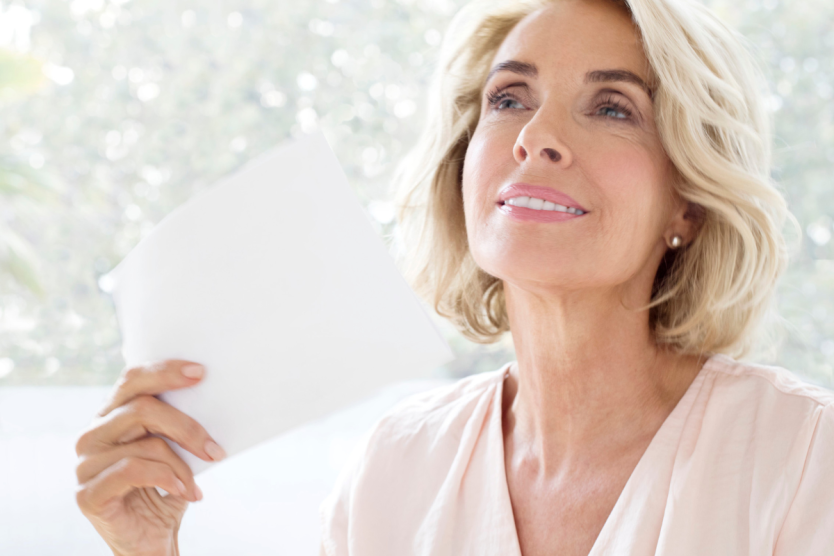Taking time to look after your health is important at any stage of your life.
The transition time of menopause is no different: just because your children may be grown, you might be retired, and life might seem less stressful, menopause self care should be a priority.
Understanding Menopause
Never mind the endless jokes about hot flashes—menopause needs to be taken seriously. Menopause is when a woman goes 12 consecutive months without having a menstrual period.1
While the average age of menopause is around 51 years old, it can occur earlier or later, and it doesn’t happen suddenly. Instead, it occurs as a transition through two stages:
- Perimenopause: when the ovaries produce less estrogen and fewer eggs, and there may be fewer periods, although women can still become pregnant. This can happen as early as the mid-30s, and can last only a few months or up to seven years.1
- Postmenopause: also called menopause, this is a transition out of perimenopause and is when a woman has not had a period for an entire year. The body produces very little estrogen, the uterine lining stops thickening, and a woman can no longer become pregnant.1
Menopause Symptoms
These physical changes are accompanied by other symptoms through peri- and post-menopause or menopause, such as those well-known hot flashes. Women also experience insomnia, mood swings, night sweats and vaginal dryness, among other side effects.
As estrogen levels decline, those hormonal changes can impact your mental health as well as your physical health. For instance, women may experience:2
- anxiety
- stress
- anger and irritability
- forgetfulness
- loss of self-esteem
- loss of confidence
- poor concentration – often described as “brain fog”
- depression
Menopause Self Care
Menopause is an unavoidable part of life, but that doesn’t mean it should be a time of suffering. Menopause self care can look the same as other stages of life:
- Make time for exercise, and if it’s outside that’s a bonus too. Even a gentle yoga regime can help, as it incorporates breathing and relaxation too.
- Eat a nutritious diet, focusing on fruits and vegetables, lean proteins, and whole grains. Consider cutting back on calories to avoid menopause weight gain, and stay hydrated to help reduce the bloat and dryness that often come with menopause.3
- Practice gratitude each day, with a gratitude journal or a morning meditation. It’s easy to focus on the negative, so take time each day to remind yourself of the good things in your life.3
Those are healthy practices at any phase of your life. Here are some ideas for self care during menopause specifically:
Stay Cool: hot flashes and night sweats are common symptoms, so find ways to stay cool. Choose clothing made of breathable fabrics like cotton;4 choose the same breathable fabrics for your bedding;1 dress in light layers to easily adjust clothing;4 get a portable fan for work or home,4 or carry a portable fan 3; keep washcloths in the freezer to cool down fast.3
Get Enough Sleep: getting enough sleep is an important facet in health at any age, and that’s true in menopause too.4 Insomnia, anxiety and night sweats can make it difficult to get a good night’s rest. Develop good sleep hygiene, such as unplugging the electronics an hour before bed, to help maintain consistent sleep habits.
Maintain Appointments: continue to see your doctor on a regular basis. Just because you are no longer of child rearing age, you still need to keep tabs on your health—physical and mental. You still need regular gynecologic care too, such as Pap tests, mammograms, and other preventive screenings.3
Seek Medical Attention
If menopause has you feeling more than a bit sad, and you’re worried about depression, seek medical attention at once. Signs of depression should not be ignored and a doctor can help. Menopause treatments may help, so use our Physician Finder to find a doctor near you who specializes in women’s health.
















